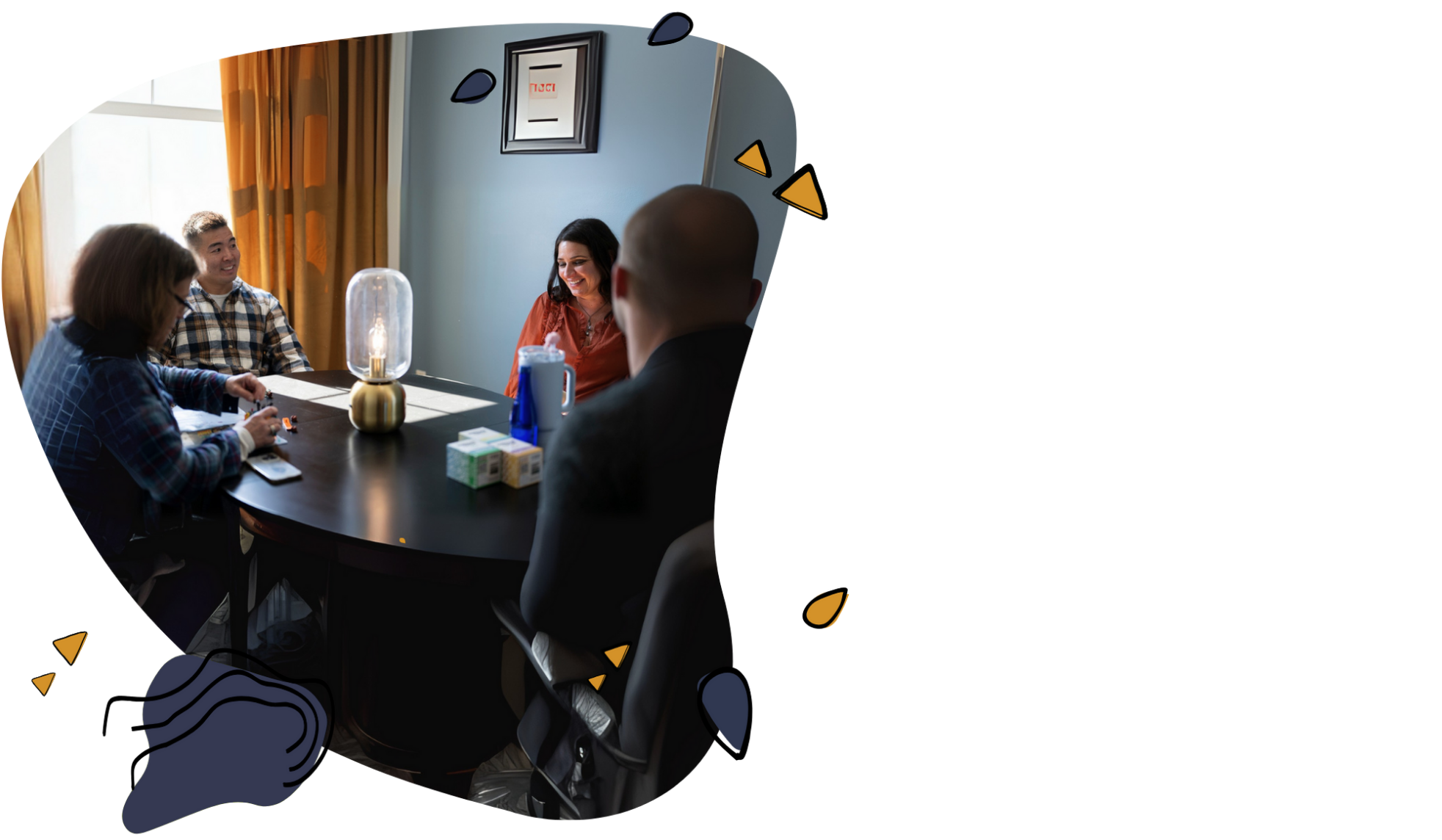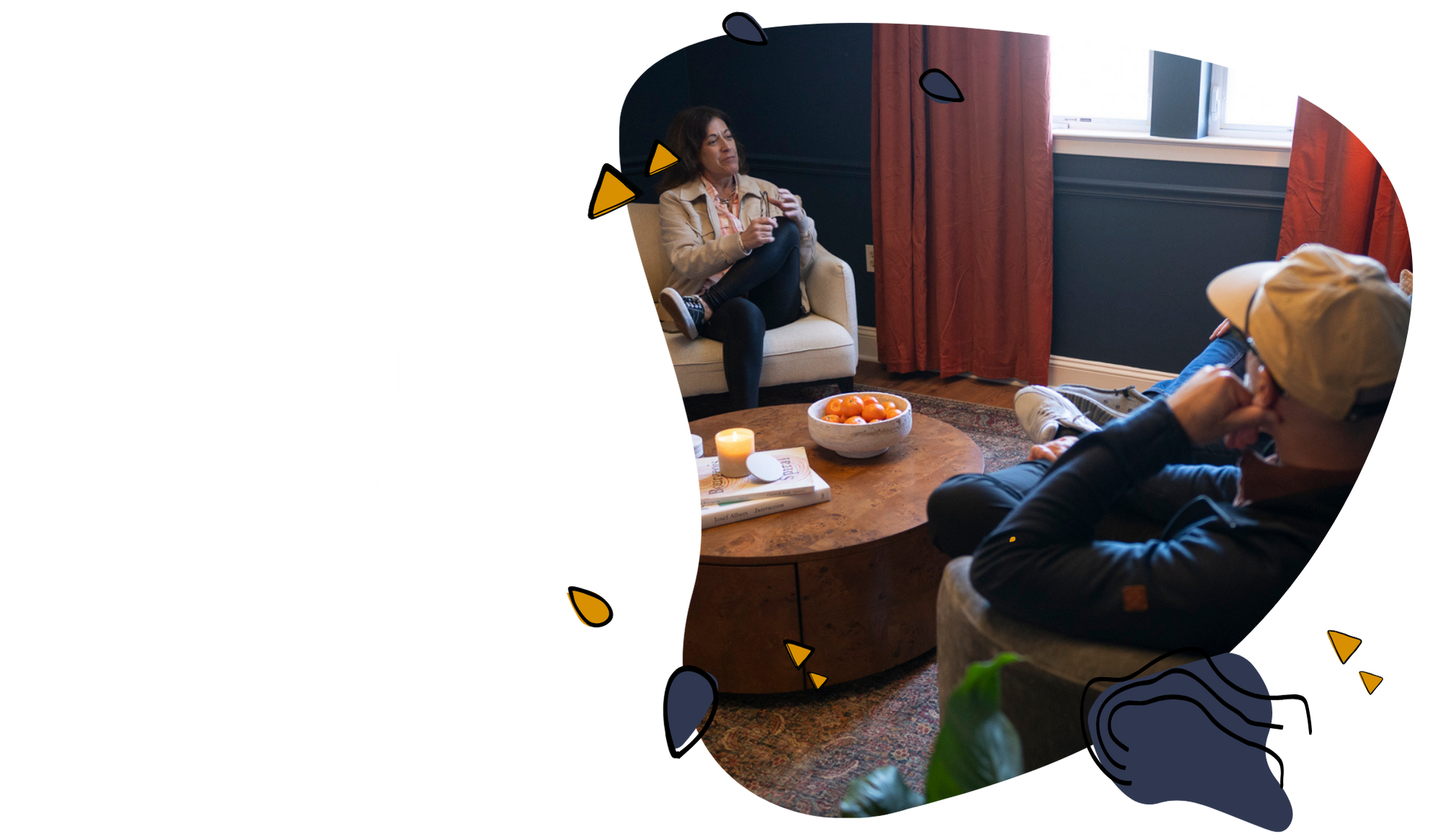Individual Therapy Sessions
Individual therapy provides a private, one-on-one space to explore thoughts, feelings, and behaviors. At G.I.A., we take a relational approach, meaning we understand our relationships – past and present – play a vital role in our emotional well-being. Individual sessions often focus on how your relationships shape your emotions, choices, and well-being.
One of the most important parts of individual therapy is finding the right therapist - one who ‘gets’ you. We prioritize matching you with a therapist who feels right for you.
Our goal is simple: for you to feel safe, supported, and truly understood, so your energy can go toward your goals and the changes you want to make.
Who Does Individual Therapy Help?
Individual therapy is ideal for:
Children, teens, or adults experiencing anxiety, depression, or stress
Those coping with trauma or major life transitions
People navigating relationship challenges or self-esteem issues
Anyone seeking focused, personalized support in a safe space
Some choose individual therapy over group therapy to focus on their unique challenges or explore sensitive topics privately. We have both male and female counselors that specialize in a variety of modalities to help men, women, and children rewrite their stories to a fuller, healthier life.

Our Approach
Our most popular modalities:
CBT (Cognitive Behavioral Therapy): Changes unhelpful thoughts and behaviors.
DBT (Dialectical Behavior Therapy): Builds skills for managing emotions and relationships.
EMDR (Eye Movement Desensitization & Reprocessing): Processes trauma and reduces its emotional impact.
Play Therapy (for children): Uses play to help children express feelings and work through challenges.
Internal Family Systems (IFS): Helps integrate the different “parts” of yourself for greater self-compassion.
Art Therapy: Uses creativity and self-expression as a pathway for healing and insight.
Relational Therapy: Focuses on how your relationships—past and present—shape your emotional life and sense of self.
Other therapies we offer include ACT, Mindfulness-Based Therapy, Motivational Interviewing, Emotionally-Focused Therapy, Solution-Focused Therapy, and more.
Modalities
-

Art Therapy
Art therapy combines counseling with self-expression through various art techniques, helping clients of all ages to improve their overall functioning, social skills, and sense of self. It’s often used with young children, teenagers, and other clients who feel more comfortable with non-verbal approaches to therapy and is provided by a credentialed art therapist who is trained to notice what is present and not present in the client’s artwork. For more information, watch this video from the Art Therapy Institute Credentials Board.
-

EMDR Therapy
EMDR (Eye Movement Desensitization and Reprocessing) therapy is a structured, evidence-based approach that helps people process and heal from traumatic or distressing experiences. During EMDR, a therapist guides the client through specific eye movements or other forms of bilateral stimulation while recalling painful memories, which helps the brain reprocess those experiences in a healthier way.
It’s especially effective for individuals struggling with PTSD, anxiety, grief, or other trauma-related symptoms.
-

DBT
DBT (Dialectical Behavioral Therapy) is an offshoot of cognitive behavioral therapy designed to help people who struggle to regulate their very strong emotions. Originally developed to help individuals diagnosed with borderline personality, its use has expanded to helping a wider range of individuals in regulating emotions, practicing mindfulness, tolerating dress, and improving their interpersonal skills. It is often delivered in a group setting by a foundationally trained or certified DBT practitioner. For more information, watch this video from PopPsych.
What To Expect At G.I.A.
-

We’re ready to help you find new solutions, improve relationships, heal old wounds, and discover the best parts of yourself.
-

Your first few sessions are about connection. We’ll take time to listen to your story, get to know each other, and see if it feels like the right fit.
Frequently Asked Questions
-
Individual therapy offers personalized attention, while group therapy provides peer support. Your therapist can help determine the best fit.
-
We match you based on your goals, needs, and relational context for the best fit. But if you have a preference, please let us know!
-
Our clients often come to us with these kinds of problems. This is by no means a complete list, but these are the most common ones:
Aging Concerns
Anger Management
Anxiety Disorders
Childhood Trauma
Depression
Disordered Eating
Family/Marital Conflict
Grief & Loss
Infertility
Obsessive Compulsive Disorder (OCD)
Menopause
Panic Attacks
Parenting Challenges
Phobias
Postpartum Depression
Post-Traumatic Stress Disorder (PTSD)
Relationship Issues
Sexual Dysfunction
Stress
Trauma
Questioning Sexual Orientation or Gender Identity
-
Typically about 55 minutes, though some may be shorter or longer depending on your goals and the type of therapy.
-
It varies—some benefit from short-term counseling, while others engage in longer-term psychotherapy. We will look at your specific needs, goals, and resources. Your therapist will help guide you through this.
-
Did you know the quality of your relationship with your therapist can predict your improvement? In fact, overwhelming evidence shows that the relationship is as important as using the right treatment method. We recommend reading our therapists’ bios prior to your intake call. Together, we can decide what clinician may be the best fit. But if you don’t feel the connection, we’ll be glad to help you find a better match.
-
Yes, 1-on-1 sessions will be more expensive compared to a group session reflecting the private, personalized attention you will receive in an individual therapy session.
Ready to Schedule?
Start by filling out our onboarding form and our team will reach out to schedule your individual counseling session.



